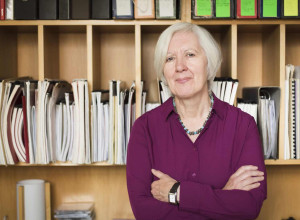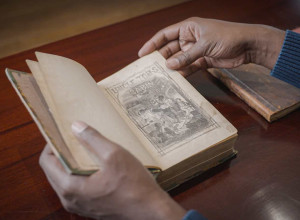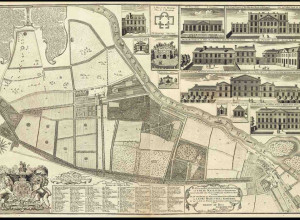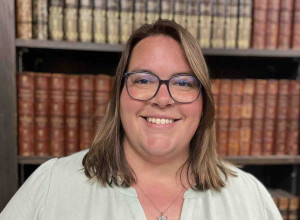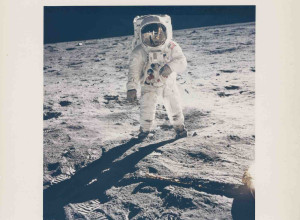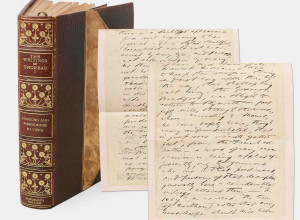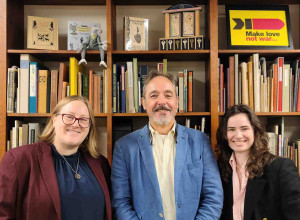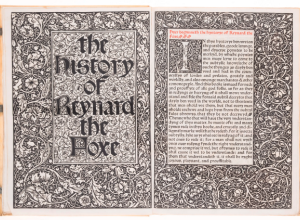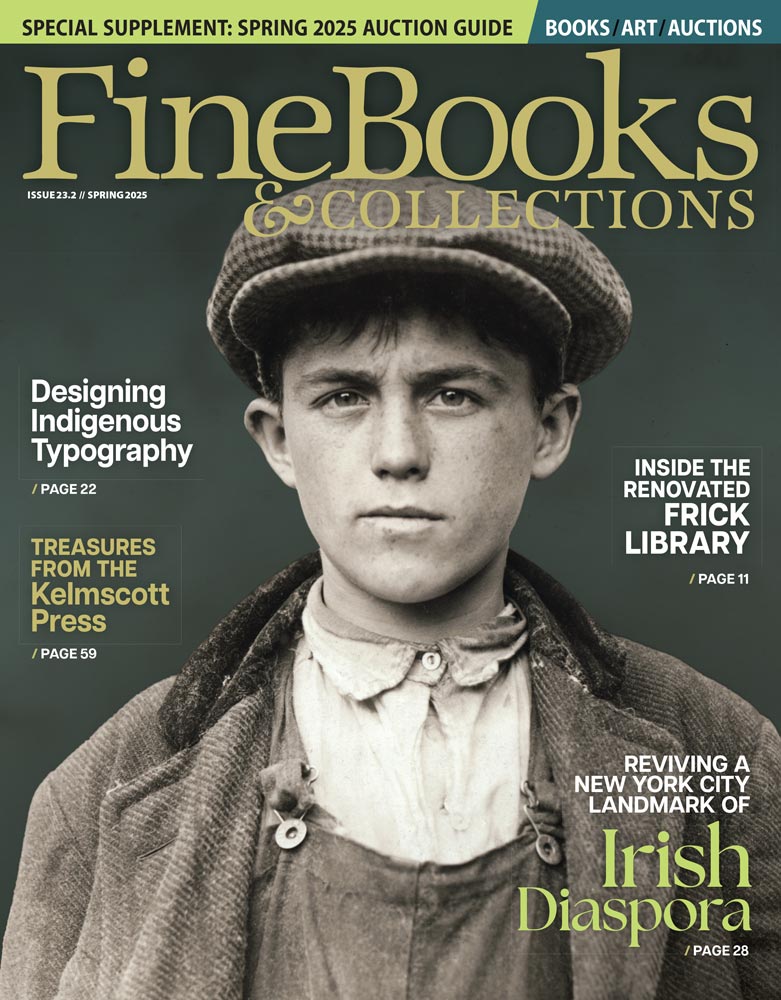Phillis Wheatley's Poems and Uncle Tom's Cabin Featured in The Afric-American Picture Gallery
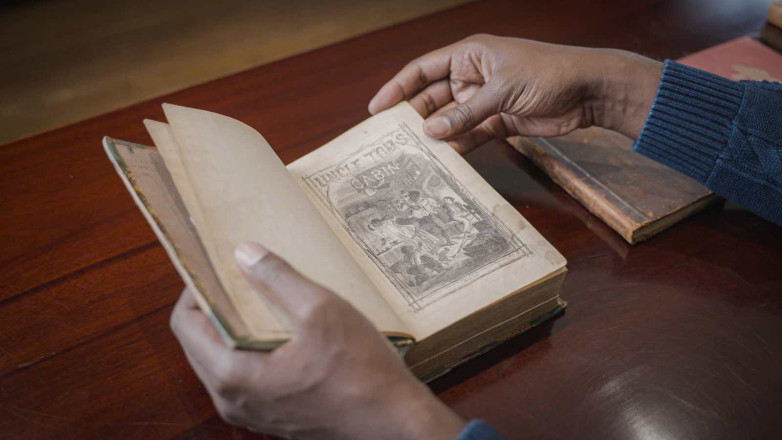
Jonathan Michael Square browses Uncle Tom's Cabin
Almost Unknown, The Afric-American Picture Gallery is a new exhibition at Winterthur Museum, Garden & Library in Delaware inspired by a 19th century essay by free Black journalist and educator William J. Wilson.
Wilson's The Afric-American Picture Gallery was published in 1859 under the pen name "Ethiop" as a series of installments in the Anglo-African Magazine. It describes an imagined gallery space that Ethiop has curated with a tour of the artworks that both celebrate and critique the experience of free and enslaved Black Americans in the 19th century. Running May 3 through January 4, 2026, the exhibition presents, for the first time, the gallery imagined by Wilson.
Among the objects selected for the exhibition are copies of Harriet Beecher Stowe’s Uncle Tom’s Cabin and Phillis Wheatley’s Poems on Various Subjects.
"These two texts anchor the exhibition’s exploration of how books and print culture have historically constructed and contested black subjectivities,” said guest curator Dr. Johnathan Michael Square, Assistant Professor of Black Visual Culture at Parsons School of Design. “One represents a voice from within the system of enslavement, the other helped galvanize white readers against it. Together, they touch on and enrich key themes in Almost Unknown."
Alexandra Deutsch, John L. and Marjorie P. McGraw Director of Collections at Winterthur Museum, Garden & Library, added: “This is an exhibition grounded in the literary world in the years prior to the Civil War. It is also a model for how a literary work can be transformed into a three-dimensional visual and aesthetic experience through the creation of an exhibition using art and material culture to bring a narrative to life.”
Square assembled drawings, paintings, sculptures, and objects from across the Winterthur collections to represent Wilson’s gallery and Black life in the United States and across the Diaspora.
“William J. Wilson’s essay is a curious text that challenges us to consider our past, reflect on our present, and imagine a more inclusive future,” said Square. “The objects visitors will see may not be the exact ones that Wilson described. Instead, they reflect my reading of the text and its relevance today as it is revealed in the Winterthur collection.”
Objects from Winterthur’s collection on show include a silhouette attributed to Moses Williams, and a modest trivet made in early America in the form of an African symbol.





